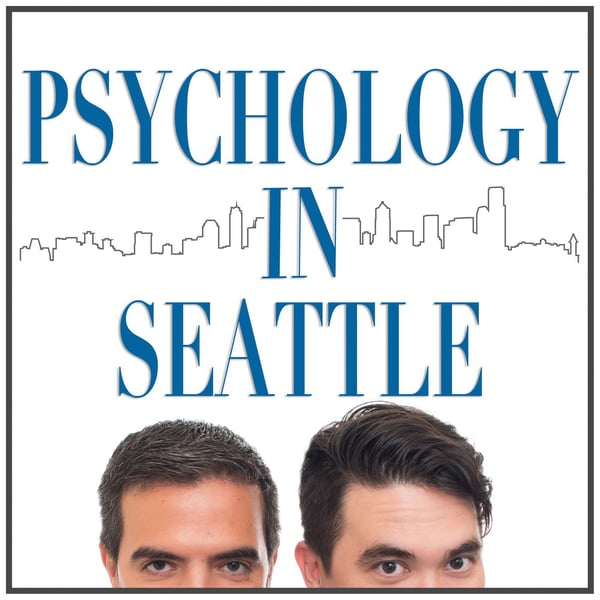My Racist Behaviors
Psychology In Seattle Podcast
Kirk Honda
4.6 • 1.2K Ratings
🗓️ 22 June 2020
⏱️ 101 minutes
🧾️ Download transcript
Summary
Become a patron of our podcast by going to https://www.patreon.com/PsychologyInSeattle
Email: https://psychologyinseattle.squarespace.com/contact
The Psychology In Seattle Podcast.
This content is for educational and informational purposes only. Although Kirk Honda is a licensed marriage and family therapist, this content is not a replacement for proper mental health treatment. Always seek the advice of your mental health provider regarding any questions or concerns you have about your mental health needs.
This show is part of the Spreaker Prime Network, if you are interested in advertising on this podcast, contact us at https://www.spreaker.com/show/3269717/advertisement
Transcript
Click on a timestamp to play from that location
| 0:00.0 | So, Burdo, one of the cornerstones of being a good therapist is being able to know your own bias. |
| 0:08.0 | And in order to know your own bias, you have to do a lot of self-exploration, a lot of listening, a lot of reading, a lot of |
| 0:18.5 | experimenting, a lot of therapy, a lot of |
| 0:23.0 | of investigation of your past and the cultural pocket that you live in. |
| 0:28.0 | And social justice, it's a multi faceted endeavor and one of them and we're hearing a lot on the news |
| 0:37.4 | about what people can do what systems of power needs need be changed, what privilege needs to be acknowledged by those with |
| 0:47.0 | the privilege. |
| 0:49.6 | And another facet that I'm finding that isn't being talked about a lot is frankly just admitting |
| 0:57.3 | what you do publicly that is unfair, biased, prejudice, even bigoted, and what you've done in the past. |
| 1:07.0 | There's a number of different functions of this. |
| 1:09.0 | We learn when we talk about our own issues, you know, you just, you put it out into the world, you personally learn. |
| 1:20.0 | And through that process, you notice more. |
| 1:25.0 | You will be able to correct in the moment for when you have those biases. |
| 1:31.0 | The other thing is that it models for people how we can talk about this sort of thing |
| 1:38.0 | because there's a lot of talk about what things needs to change and a lot of people saying these other people need to change, these other things need to change, and those are all important. |
| 1:51.3 | But another important facet to this is for those who are willing to model for everyone else |
| 2:00.0 | how to just take responsibility for your own bias and your own unfair attitudes and your own unfair behavior. |
| 2:08.0 | Because through that other people can see, oh, so what we're talking about when we're talking about racism |
| 2:17.4 | is something that everyone does. |
| 2:21.9 | And some people are more guilty of it than others, some groups are more guilty of it than others, but everyone does it. |
| 2:28.0 | And if we can all just admit it, then we can all kind of move forward. |
| 2:33.0 | And to destigmatize racism in a sense, |
... |
Please login to see the full transcript.
Disclaimer: The podcast and artwork embedded on this page are from Kirk Honda, and are the property of its owner and not affiliated with or endorsed by Tapesearch.
Generated transcripts are the property of Kirk Honda and are distributed freely under the Fair Use doctrine. Transcripts generated by Tapesearch are not guaranteed to be accurate.
Copyright © Tapesearch 2025.

